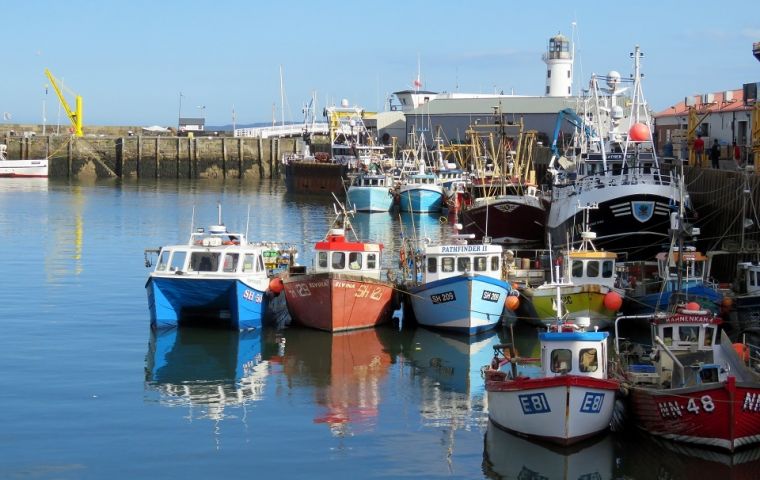MercoPress. South Atlantic News Agency
UK Parliament to discuss new legislation for the Fisheries Management Plans
 The introduction of minimum conservation reference sizes (MCRS) for lemon sole (250mm), turbot (300mm), and brill (300mm) in the English waters
The introduction of minimum conservation reference sizes (MCRS) for lemon sole (250mm), turbot (300mm), and brill (300mm) in the English waters New legislation implementing a range of short-term management measures for certain fish species was introduced to Parliament last week. These new arrangements have been identified within the first Fisheries Management Plans (FMP) as a priority to help provide additional protection to vulnerable stocks.
The measures, which are subject to Parliamentary scrutiny, are expected to come into force on 16 December 2024, include:
• The introduction of minimum conservation reference sizes (MCRS) for lemon sole (250mm), turbot (300mm), and brill (300mm) in the English waters of the International Council for the Exploration of the Seas (ICES) designated areas 7d and 7e (the Channel Sea).
• An increase to the existing MCRS for crawfish in all English waters to 110mm to protect the juveniles of these stocks from being landed before they have matured and had chance to reproduce.
• A requirement that all flyseining (fishing with an encircling and towed net, operated from a boat by means of two long ropes (seine ropes) designed to herd the fish towards the opening of the net) vessels use a 100mm mesh as standard in the English waters of ICES divisions 7d and 7e so that smaller, juvenile fish can escape from the nets and have chance to reproduce.
• A restriction of the engine power of vessels using flyseining gear in the English territorial waters of these areas 7d and 7e to help manage fishing pressures on demersal NQS in inshore fishing grounds (the more powerful an engine, the bigger the boat and ability to fish in adverse weather).
• Transfer of the UK-EU annually negotiated catch limits for commercially caught bass from secondary legislation into fishing license conditions so they can be updated more quickly when required. License conditions are generally quick to introduce and would allow the commercial bass catch limits to be updated promptly following international negotiations, so they are in line with evolving evidence.
Any changes to fishing gear and/or fishing practices to comply with these new measures will need to be made by 16 December 2024. For further info check, Fisheries Management Plans – News and updates from Defra’s FMP programme (blog.gov.uk)




Top Comments
Disclaimer & comment rulesCommenting for this story is now closed.
If you have a Facebook account, become a fan and comment on our Facebook Page!